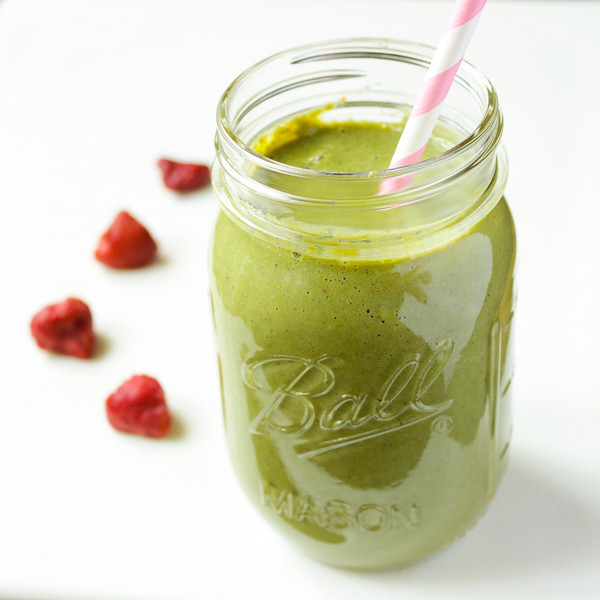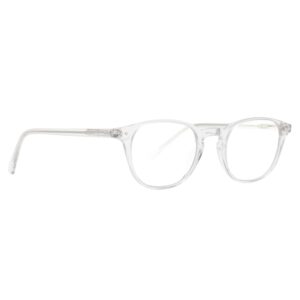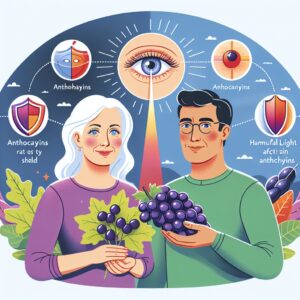
Key Takeaways
- Blue light from screens can disrupt sleep and strain eyes, especially for digital nomads.
- Certain plant-based foods are rich in nutrients that help protect against blue light damage.
- Lutein and zeaxanthin, found in marigold, spinach, and other greens, are crucial for eye health.
- Incorporating these foods into your diet can be simple and enhances overall well-being.
- Creating a plant-friendly workspace and adopting healthy habits are key for long-term eye care.
Why Blue Light is a Challenge for Digital Nomads
As digital nomads, we’re constantly connected, whether we’re coding on a beach in Bali or drafting a blog post in a Parisian café. But with that digital lifestyle comes a hidden foe: blue light. This sneaky light source emitted by our beloved screens can mess with our sleep and leave our eyes feeling like they’ve run a marathon. So, it’s crucial we defend our peepers with the best armor out there, and it turns out, it’s on our plates!
The Power of Plants Against Digital Eye Strain
Now, I’m not just talking about any old greens. I mean specific, nutrient-packed powerhouses that studies have shown to be effective against blue light. These aren’t just good for your eyes; they’re good for your whole body. And the best part? They’re easy to find and even easier to add to your meals, no matter where your nomadic life takes you.
Identifying the Foe: What is Blue Light?
Let’s break it down. Blue light is a type of light with a short wavelength, which means it’s high-energy. It’s everywhere – from the sun to your smartphone. While it’s not all bad (it can boost alertness and help memory), too much exposure, especially before bed, can throw off your body’s natural sleep rhythm. That’s why after a day of staring at screens, you might find yourself tossing and turning at 2 a.m.
Blue Light and Its Effects on Nomads’ Eyes
Because we’re always on our devices, we’re constantly bombarded with blue light. This can lead to digital eye strain, with symptoms like dry eyes, headaches, and blurred vision. It’s not just uncomfortable; it can actually be harmful over time, potentially leading to serious conditions like macular degeneration.
Decoding the Science: How Blue Light Impacts Us
Blue light penetrates all the way to the retina, and our eyes aren’t great at blocking it. But nature has a solution. Certain pigments in our eyes can help filter out blue light, and guess what? We can get them from plants. That’s where our strategy begins.
Choosing Your Armor: Plant-Based Foods That Protect You
So, what are these magical nutrients? Lutein and zeaxanthin. They’re like sunglasses for your soul… well, for your eyes. These carotenoids are found in high concentrations in the macula, a part of the eye that’s critical for vision. And they’re not just sitting there looking pretty; they’re actively filtering out harmful blue light.
Marigold Magic: Lutein’s Role in Blue Light Defense
Marigolds aren’t just for gardens; they’re a fantastic source of lutein. But if you’re not into eating flowers, don’t worry. You can also find lutein in:
- Kale
- Spinach
- Broccoli
- Peas
These leafy greens and veggies can easily be tossed into a smoothie or salad, making them a simple addition to your nomadic diet.
Bilberry Brilliance: Anthocyanins and Your Vision
Bilberries, the European cousin of the blueberry, are brimming with anthocyanins, which are known for their antioxidant properties. These little berries can help improve night vision and reduce eye fatigue – perfect for those late-night work sessions.
Spinach Shield: Zeaxanthin’s Protective Properties

“Fresh Spinach in White Strainer and …” from www.pexels.com and used with no modifications.
Spinach is a superfood for a reason. It’s packed with zeaxanthin, which, along with lutein, forms a dynamic duo that protects your eyes from blue light. So, next time you’re making a sandwich or wrap, throw in some spinach for an extra layer of defense.
Integrating Nature’s Protection Into Your Nomadic Lifestyle
Let’s face it, being a digital nomad means adapting to different environments while maintaining your health. Integrating plant-based protection into your lifestyle isn’t just smart; it’s necessary for longevity in the game. And it’s not about overhauling your diet overnight. It’s about making small, sustainable changes that add up over time.
Eating Your Way to Better Eye Health

“Kale Smoothie | theblog.jessikerbakes …” from www.flickr.com and used with no modifications.
Here’s the deal: your eyes need certain nutrients to combat the effects of blue light, and you can get these from what you eat. It’s as simple as adding a handful of spinach to your omelet or snacking on a mix of berries. Consider these easy swaps to boost your intake of eye-protecting nutrients:
- Swap your morning bagel for a kale and avocado smoothie.
- Choose a quinoa salad with peas and roasted broccoli for lunch.
- Snack on goji berries or dark chocolate-covered almonds.
These small changes can have a big impact on your eye health, plus they’re delicious!
Supplementing with Plant-Based Nutrients

Sometimes, getting enough of these eye-protecting nutrients through food alone is tough, especially when you’re hopping from place to place. That’s where supplements come in handy. Look for ones that contain lutein and zeaxanthin, and consider the following when choosing a supplement:
- Quality: Opt for reputable brands that have third-party testing.
- Dosage: Follow the recommended daily amounts, and don’t overdo it.
- Ingredients: Check for fillers or allergens if you have sensitivities.
Remember, supplements are there to complement your diet, not replace it. So keep munching on those greens!
Enhancing Your Workspace: The Greenery Approach
Creating a workspace that’s easy on the eyes is about more than just ergonomics; it’s about bringing in elements of nature. Plants not only improve air quality but also can reduce stress and enhance your mood. Plus, they’re a gentle reminder of the power of plant-based living.
Designing a Plant-Friendly Nomadic Workspace

“File:Succulent plant Terrarium.jpg …” from commons.wikimedia.org and used with no modifications.
Whether you’re working from a co-working space or your Airbnb rental, you can always find ways to greenify your workspace. Try these tips:
- Keep a small potted plant, like a succulent or peace lily, on your desk.
- Use a desktop wallpaper with lush greenery to rest your eyes occasionally.
- Choose locations with natural light and views of nature, if possible.
These touches of green can help keep your eyes and mind refreshed throughout your workday.
Maintaining Healthy Habits Amidst Travels

“Faculty overcome challenges posed by …” from www.usforacle.com and used with no modifications.
Maintaining a routine can be challenging when you’re always on the move, but it’s crucial for your eye health. Try to:
- Set a schedule that includes regular breaks from the screen.
- Practice the 20-20-20 rule: every 20 minutes, look at something 20 feet away for 20 seconds.
- Stay hydrated and get enough sleep – both are vital for healthy eyes.
By incorporating these habits, you’re not just taking care of your eyes; you’re investing in your overall well-being.
Your Action Plan: How to Start Today
You don’t have to wait to take action. Start today by assessing your current diet and identifying where you can add more lutein and zeaxanthin-rich foods. Make a shopping list for your next destination, prioritizing these eye-friendly foods.
Most importantly, remember that every small step counts. Whether it’s choosing a side salad over fries or taking a five-minute break to gaze out the window, these actions contribute to your eye health. And if you’re worried about slipping up, don’t be. It’s about progress, not perfection.
So, go ahead, make those tweaks to your diet, pop a plant on your desk, and take those breaks. Your eyes (and your future self) will thank you for it.
So, go ahead, make those tweaks to your diet, pop a plant on your desk, and take those breaks. Your eyes (and your future self) will thank you for it.
Frequently Asked Questions (FAQ)
How does a plant-based diet support eye health in relation to blue light?
A plant-based diet is rich in antioxidants and specific nutrients that combat the harmful effects of blue light. Foods high in lutein and zeaxanthin, like spinach, kale, and peas, help filter out blue light and protect the retina. This dietary approach supports the overall health of your eyes, reducing the risk of blue light-induced strain and long-term damage.
Are supplements as effective as actual food sources for blue light defense?
While whole foods are the best source of nutrients, supplements can be an effective way to ensure you’re getting enough lutein and zeaxanthin, especially when you’re on the go. High-quality supplements can complement your diet and offer a concentrated dose of these essential nutrients for eye health. Just remember to choose reputable brands and adhere to the recommended dosages.
Can blue light filtering apps replace the need for dietary adjustments?
Blue light filtering apps can reduce the amount of blue light emitted by devices, but they don’t replace the protective effects of a nutrient-rich diet. It’s best to use these apps in conjunction with dietary changes for a comprehensive approach to blue light defense. Your diet has a significant impact on eye health, providing essential nutrients that apps alone cannot supply.
What are the immediate actions I can take to decrease blue light exposure?

“computer glasses. It’s a very light …” from www.flickr.com and used with no modifications.
To decrease blue light exposure, consider the following steps:
- Use blue light filters on your devices or wear blue light blocking glasses.
- Adjust screen brightness and contrast to comfortable levels.
- Take regular breaks from screens using the 20-20-20 rule.
- Limit screen time, especially before bedtime, to improve sleep quality.
These actions can help reduce the immediate impact of blue light on your eyes and sleep patterns.
How do I balance screen time with eye health while traveling?
When traveling, it’s essential to balance screen time with activities that rest your eyes. Schedule regular breaks, get outdoors, and engage in non-screen-based activities. Prioritize meals rich in eye-protecting nutrients, and stay hydrated. Consider using blue light blocking glasses during prolonged screen use, and ensure your work setup is ergonomically friendly to reduce strain.


